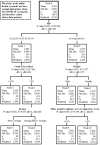Physicians' Perspective on Vaccine-Hesitancy at the Beginning of Israel's COVID-19 Vaccination Campaign and Public's Perceptions of Physicians' Knowledge When Recommending the Vaccine to Their Patients: A Cross-Sectional Study
- PMID: 35356022
- PMCID: PMC8960033
- DOI: 10.3389/fpubh.2022.855468
Physicians' Perspective on Vaccine-Hesitancy at the Beginning of Israel's COVID-19 Vaccination Campaign and Public's Perceptions of Physicians' Knowledge When Recommending the Vaccine to Their Patients: A Cross-Sectional Study
Abstract
Because public healthcare workers (HCWs) are at the forefront of the battle against COVID-19, they must be able to provide vaccination information to their patients and respond to their anxieties and concerns. This research objectives were to (1) examine physicians' perceptions of how they received information about the Pfizer COVID-19 vaccine, their attitudes toward hesitant colleagues, and their own knowledge and self-efficacy in communicating information to their patients, and (2) to examine the public's perceptions of physicians' knowledge when recommending the COVID-19 vaccine to their patients. At the beginning of the vaccination campaign, a survey examined the attitudes of physicians in the Israeli public healthcare system (n = 295) regarding the Pfizer vaccine. In addition, the attitudes of a representative sample (n = 500) of the Israeli adult population (age 18+) were examined through interviews. Most of the participating physicians (81%) reported they had already been vaccinated or intended to be vaccinated. When asked about their reasons for vaccine hesitancy, 27% cited concerns about long-term side effects and doubts about the vaccine's effectiveness in preventing contagion. They cited system pressure and departmental norms as explanations for their eventual compliance. Moreover, they saw the system as less tolerant of hesitant physicians, while they themselves tend to be more tolerant. The results of the survey of the public showed that mostly young people (under 44) who tend to be critical believe that physicians do not have sufficient knowledge to make recommendations about the COVID-19 vaccine. The findings indicate that the health system should employ complete transparency in conveying the advantages and disadvantages of the COVID-19 vaccine to physicians. The system should be more tolerant of physicians' worries and concerns and grant legitimacy to their reservations and misgivings. Moreover, medical studies should reinforce physicians' immunological knowledge regarding vaccinations so they can help their patients make informed decisions.
Keywords: COVID-19; HCWs; Israel; cross-sectional study; physicians' perspective; public's perceptions; vaccination campaign; vaccine hesitancy.
Copyright © 2022 Gesser-Edelsburg and Badarna Keywan.
Conflict of interest statement
The authors declare that the research was conducted in the absence of any commercial or financial relationships that could be construed as a potential conflict of interest.
Figures
References
MeSH terms
Substances
LinkOut - more resources
Full Text Sources
Medical



